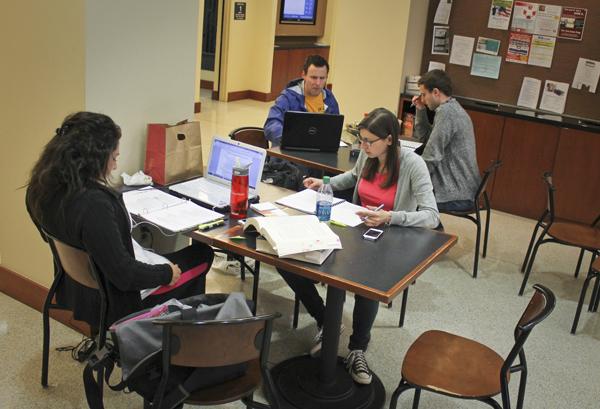The GW Law School is negotiating financial aid with accepted students, a new tactic used in several top law schools to improve yield rate as applications free fall by about 17 percent nationwide.
Competition among top law schools has grown fiercer to fill first-year classes, giving students more power to leverage for bigger aid packages. Some students said they have had more luck bargaining at GW than other universities.
The shaky climate for legal education is also keeping the GW Law School, ranked No. 21 by U.S. News & World Report, from disclosing its own application figures until the fall because that information could “impact our incoming class,” law school spokeswoman Liz Field said in an email. She added that this year’s application decline was “much less” than the 17 percent national slump, but would not elaborate.
Last year, GW disclosed its application numbers in April, and was about on par with the national decline. Field said disclosing last year’s data was an outlier, as “historically, the law school has never released preliminary data regarding applications.” The official deadline for first-year J.D. students to submit their applications was in March.
To turn those falling applications into a large enough first-year class, the school has turned to negotiating with students for aid. Field said the law school’s experience negotiating for tuition discounts “is comparable to other schools.” More than half of GW law students receive direct financial aid, the vast majority of which stems from the school’s $80 million operating budget.
Senior Ella Gladman picked GW Law School after applying to a dozen others over the past year, but her decision hinged on negotiation.
“When I would go to the admitted student days, pretty much everyone talks about how much money they got and if they’re going to ask for more and if they’re going to negotiate,” Gladman, who plans to study international or public interest law, said.
For Gladman, the back-and forth began after GW offered her $10,000 a year, which was less than what she got from some others. But after she asked for more financial aid from the school – leveraging the higher offers from other schools – GW hiked up its offer to $17,000, while others, like University of Southern California Gould School of Law, held their ground.
Across the country, law applicants now have “a bargaining chip,” said Kyle McEntee, executive director of national advocacy group Law School Transparency. He said the phenomenon is new, picking up particularly over the past year as headlines blared word of law schools’ struggles.
“The prospective students are empowered by the news coverage of the dropping applications and the expected dropping enrollment,” McEntee said. “The school needs them for the revenue.”
The prospects look bad from about every angle. Nationally, the average debt load for law graduates nationwide has surpassed $100,000, and just more than half earned full-time legal jobs after graduation last year.
Even at GW, where 81 percent of new graduates were employed last year, the school handed out $3 million to fund short-term internships for more than 100 former students.
McEntee said those numbers could be used by applicants as negotiating power, though schools shouldn’t “claim some moral high ground” by not disclosing data.
“Students would like to know whether they’re in a position to negotiate more for a larger tuition discount,” he said. “If they know that school is struggling to fill their class, and they are comfortable with the school, they’ll try to get as much money out of them as possible.”
Brian Tamanaha, a legal profession expert and a law professor at the Washington University in St. Louis Law School, said there’s not much law schools can do about students comparing enrollment and financial aid information, especially on forums and info hubs like LawSchoolNumbers.com.
“Every law school is subject to what their competitors do. If a higher-up school is struggling with its enrollment target and it fills its waitlist early in the summer, it’ll be taking away students that even already paid their deposits elsewhere,” Tamanaha said. “It’s very volatile.”







